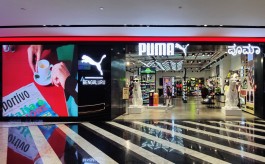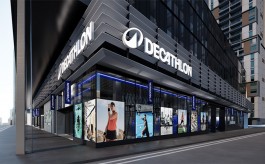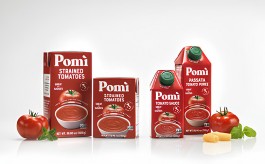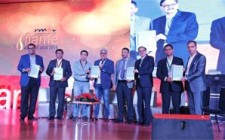Mapro spreads the jam
March 28, 2016
The 56-year old regional brand is going national with its jams, syrups, candies and chocolates, hoping to stand its own against Hindustan Unilever, Nestle, Perfetti and Parle Agro
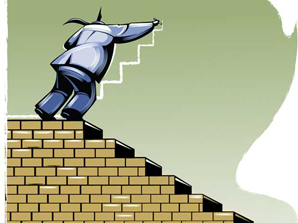 Mapro Foods, Maharashtra's homegrown jams, syrups and chocolates brand, is stepping out of its comfort zone. It has instituted a team of professionals to guide the company on to the national stage, has set up an office in Mumbai and is talking to Barry Callebaut, the world's largest B2B chocolate and cocoa maker, to launch its own brand of premium chocolates.
Mapro Foods, Maharashtra's homegrown jams, syrups and chocolates brand, is stepping out of its comfort zone. It has instituted a team of professionals to guide the company on to the national stage, has set up an office in Mumbai and is talking to Barry Callebaut, the world's largest B2B chocolate and cocoa maker, to launch its own brand of premium chocolates.One of the first big shifts according to Mayur Vohra, managing director of Mapro Foods, is that the family will not be involved in the day-to-day operations anymore. "We are setting in place a new team of seven members. From this we will choose a CEO. If the business has to grow, it has to be run by professionals," said Vohra. The team is expected to help increase its revenue from Rs 250 crore at present to Rs 500 crore by 2020 and Rs 1,000 crore by 2025.
Mapro has also moved its sales and purchase department in Mumbai, stepping out of its home in Panchgani, one of Maharashtra's picturesque hill stations, for the first time and has beefed up its sales team to 300. Vohra said that the company has not been too ambitious and, hence, is present only in western India, but that is going to change.
Chocolates, a premium play
Mapro Foods is currently organised into three main categories - jams, squashes and syrups fruity chews; and, chocolates. Vohra says the company would have been content with its leisurely pace of growth had it not been for the remarkable success Falero created in the fruity chew segment. Launched in 2008, with a major marketing push in 2012, Falero, a combination of fruit and sugar in pectin jelly, did well. "But our eyes opened when Nestle, Perffeti and Parle copied our product. It created a new category," said Vohra. Today, Falero is the largest revenue contributor to the company's sales.
Mapro also sells branded chocolates, which the company believes "are tomorrow's mithai. But, we feel that the Indian consumer is not being served well. Today, a lot of products are chocolate compounds rather than cocoa butter", Vohra said. The chocolate industry in India, valued at Rs 5,800 crore in FY 2014, has been growing at a CAGR of 15 per cent over the past three years. A report from ValueNotes estimates that the industry will be worth nearly Rs 12,200 crore by FY 2019, growing at a CAGR of 16 per cent.
"We started with coated dates and pan flavoured sweet. It has had a good response.
We are increasing capacity ten times. Indian flavoured centres should take off by next year in upmarket segments," said Vohra. He is clear that he will not get into the mass-segment. Chocolates will be a premium play for Mapro.
Like many other homegrown brands such as Keventers in Delhi, Boroline in Kolkata, Mapro's reach is not confined to the borders of its constituency. Started in 1959 by Kishore Vohra in Panchgani, the first factory was set up in 1983, on a 10-acre plot which has now expanded to 35 acres with the capacity going up from 150 tonnes a month to 150 tonnes a day.
Being located in a tourist town has helped Mapro Foods build its brand without spending too heavily on advertising. In Panchgani, the brand is an unmissable presence. All its properties are in prime locations, linking Mapro indelibly in public memory with the town. "There are enough people passing by, you just had to get them inside. We were the first one to showcase our factory. Once people saw the factory they would also want to buy products, so we created shop centres outside of the factory," Vohra added.
To leverage the brand's popularity, the company set up Mapro Cafe and Mapro Gardens; places where it could interact closely with the visiting population. It helped get to know the consumers better and develop product lines that were more closely aligned to their tastes. For instance, in 1989 they ventured into making ice-creams. "We were supplying fresh strawberry syrup for Cornetto ice-creams and every time we had to test a batch we would get ice-cream from market. Also, a lot of people started asking us, why don't you add something to eat, so we started with sandwiches and pizza in 1993 and 1998 respectively," Vohra said.
The company introduces at least three-four variants of Falero and fruit beverages concentrates every year and Vohra added that only if people come back for the same product next year, will it be launched in the market. Last year, (CY2015) 2.4 million people walked into Mapro Gardens, up from 450,000 around 10 years back.
Not only did the company leverage the town's tourist population to endear itself to a large base of customers and launch new products, it did so without spending too much. "What a Paperboat (competing brand of fruit-based beverages) may have to do to get people to try their product we didn't have to bother about it. Our survival and growth happened because we did not have to spend on first trial," added Vohra.
So far, Mapro is well-entrenched in western India, the next major expansion will be in the South, followed by North. "We need a different mindset for entering these markets." It will also have to adopt more traditional forms of advertising and marketing and Vohra said that they would be focusing largely on digital platforms. Just four years shy of its 60th birthday, the jam maker is finally leaving home.
Advertisement

